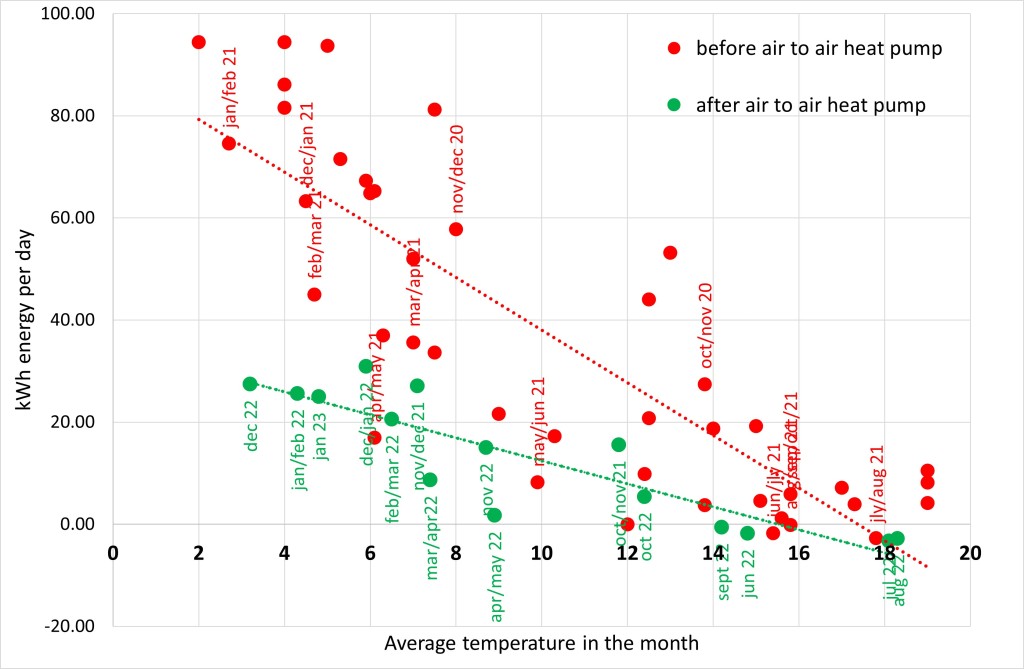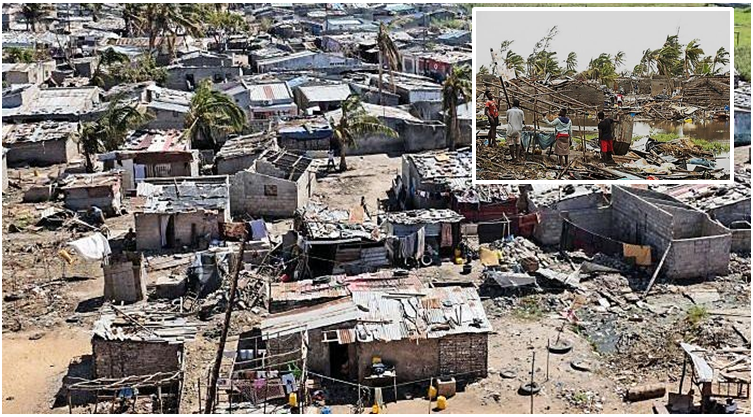There is a lot of noise about air source heat pumps at the moment, and in particular air to water heat pumps that replace the gas boiler in your house and feed the radiators. Heat pumps are extremely energy efficient, because instead of generating heat (from gas or electricity) they pump heat from outside a building to the inside. They might pump 3 – 4kW of heat for every 1kW of electricity that they use. But systems that replace your gas boiler are costly, according to the Energy Saving Trust “Typical costs are around £7,000 to £13,000” https://energysavingtrust.org.uk/advice/air-to-water-heat-pumps/
An air to water heat pump system typically heats the water to 50 degrees C. This is lower than a normal central heating boiler, and so you might need bigger radiators for the system to provide enough heat to each room, or expensive additional insulation to reduce the heat demand. Air to water heat pump systems need space for the internal plant, and installation will take days and be very intrusive. This is probably why the government has little take up of the Boiler Upgrade Scheme.
There is an alternative to these expensive air to water heat pumps, namely air to air heat pumps – commonly called air conditioning units.
In an air to air system, instead of the heat pump being used to heat the water for your central heating radiators, it heats the air directly in a fan unit inside the house – hence the term “air to air”. In effect, it is an extremely efficient fan heater. Air to air heat pumps are better known as air conditioning units because they have the additional advantage of being able to provide cooling in summer, making life bearable when outside temperatures are 40+ degrees.
We live in a typical 1930s 3 bedroom semi-detatched house with solid walls. We paid around £1500 for a 4kW air conditioning unit. It was installed in less than a day and sited in the hallway it provides heat to all the rooms in the house. There is none of the ‘plant’ associated with air-to-water heat pump systems and so no loss of space. Because the unit pumps heat, it only takes 1kW of electricity to provide 4kW heat – the most efficient heating technology on the market.
These pictures show the internal and external units.

We have been delighted with the performance. The heat from the hall dissipates throughout the house through open doorways (both upstairs and downstairs), and we can avoid heating rooms that we don’t use simply by closing the doors.
We have retained our gas boiler to heat our water, but have removed several radiators. We have kept a few as backup but have not had to use them. We have a wood burning stove to lift the living room temperature in the evenings and provide supplementary heat in the very coldest weather. Our only ‘regret’ is that we didn’t fit a slightly bigger unit, which would be better when temperature outside reached -5 to -7 degrees.
The chart below shows how much our energy consumption has changed as a result of the heat pump. Combined with our solar panels and renewable electricity supply, our house is now net zero.

In summary, there is a readily available, low cost, low disruption, extremely high efficiency heat pump available which you can install straight away without having to make your radiators bigger or spend thousands on insulation, and which will also provide cooling in summer.
So why haven’t we heard of this before? I don’t know – but you are in on the secret now.














